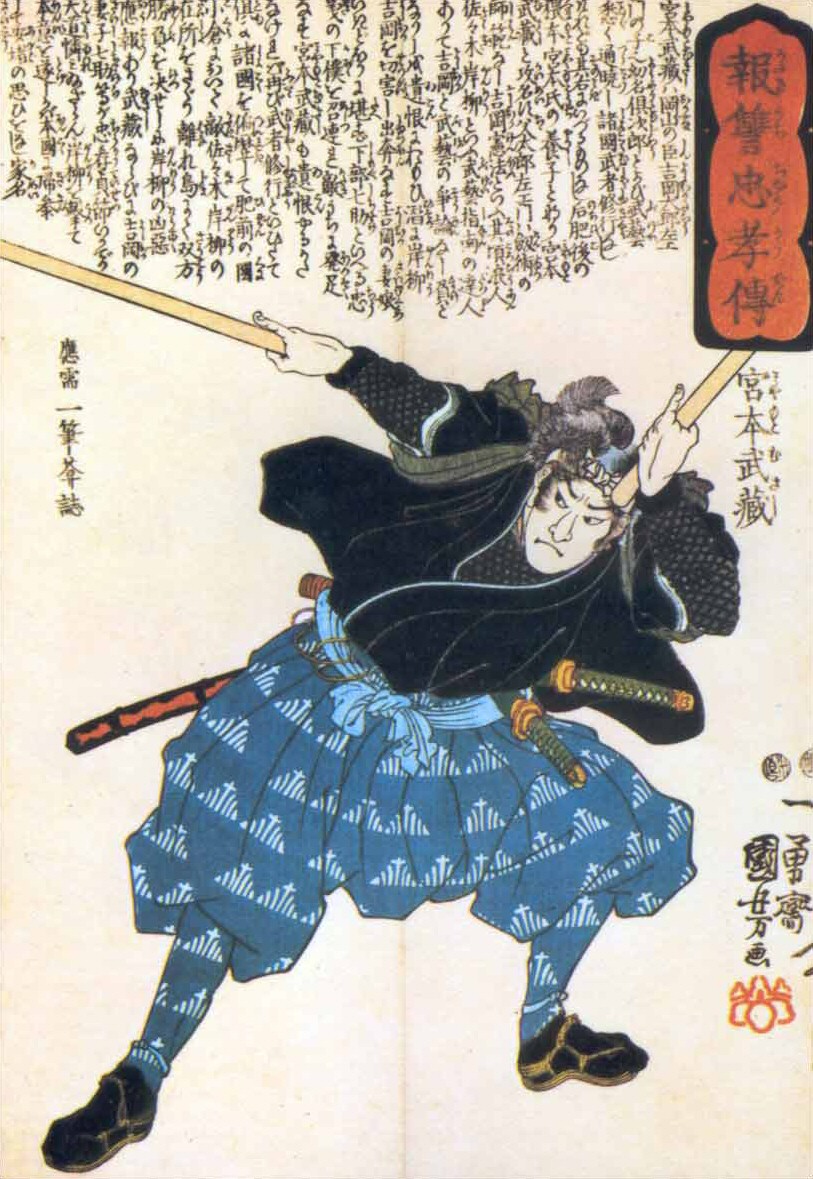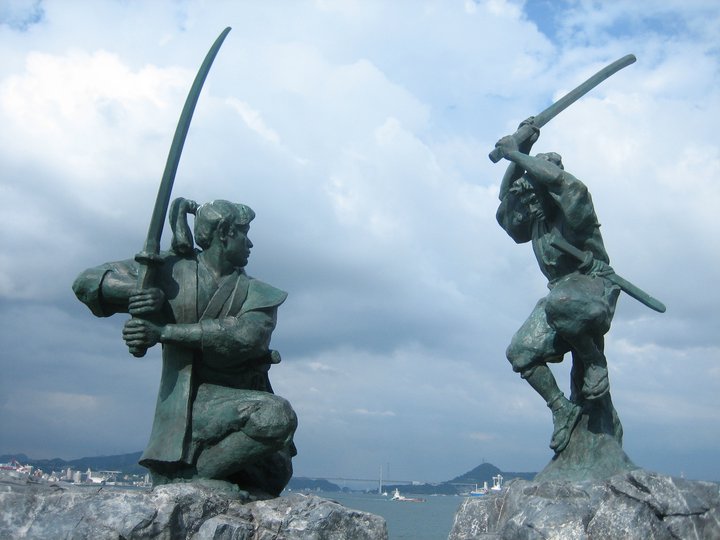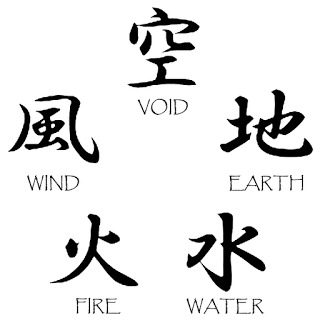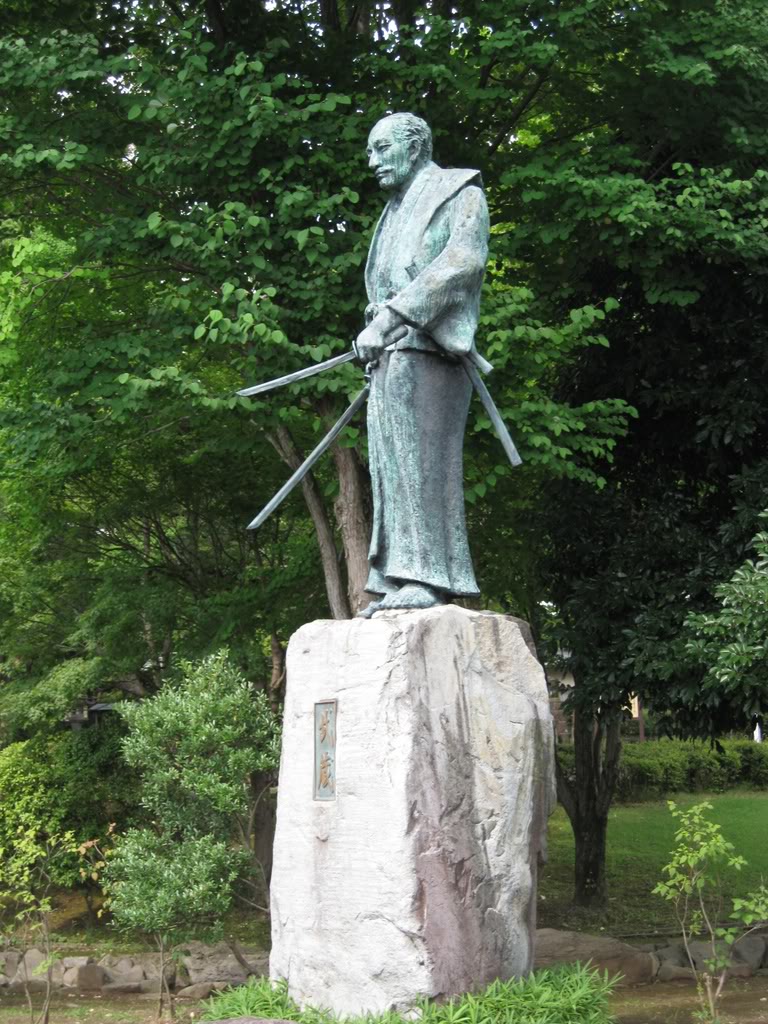Musashi and the Book of the Five Rings - Japanese Swordsman, Samurai, Poet, and Artist
The Book of Five Rings
If you collect katanas long enough you're eventually going to hear of him. One of the most famous and revered swordsman who ever lived, Miyamoto Musashi has inspired countless martial artists for centuries through his writings and the legends that surround his life. You've probably heard the name before now, whether referenced as a historical figure or as a character in one of the dozens of films, manga, and video games he is featured in. In addition, there are multiple katanas produced every year that have his name attached to them - he is a revered individual in the sword community. But how much do you actually know about him?

Miyamoto Musashi wielding two bokken by Utagawa Kuniyoshi.
Born in 1584, Miyamoto Musashi was the son of Shinmen Munisai, a martial artist and expert swordsman. From a very young age Miyamoto Musashi became fixated on mastering the sword. He trained hard and fought numerous duels beginning at the age of thirteen - according to some, he fought over sixty duels without being defeated. In many of these duels he eschewed using a katana, instead preferring to defeat his opponent with a wooden bokken to show his mastery of combat. He was known also for mastering combat using a katana and wakizashi at the same time, a two-handed style he dubbed "Ni-Ten Ichi Ryu," or "The School of the Strategy of Two Heavens as One."

Statue on Ganryu Island depicting the duel between Miyamoto Musashi and Sasaki Kojiro
Most of what we know about Musashi came from his writings. Unfortunately, little is known about his life except his training, duels, and philosophy of swordfighting as these were the only subjects he wrote about with any detail. Thankfully, his writings in this area were of high quality, and nowhere is this more evident than in his penultimate work, "Go Rin No Sho" - translated into English as "The Book of Five Rings."

The Five Rings
Perhaps sensing that the end of his life was near, Musashi left behind his duels to live as a hermit. During this time he wrote The Book of Five Rings, finishing just months before his death. It details Musashi's own school of martial arts - Ni-Ten Ichi Ryu - and his interpretation of "the Way" (typically understood as the Way of Strategy). The manuscript has been studied by martial artists all over the world for generations since it was produced, and is one of the most famous Japanese texts in history. While short by modern standards, the book is layered with complexity. Every page has insight into combat both large and small scale, as well as Musashi's thoughts on various aspects of life that may be only tangentially related to combat.
Musashi writes with a very unique voice. His techniques are many, and have very interesting names like "Penetrating the depths," "The Body of a Rock," "To Hold Down a Pillow," among others. While some consider his descriptions of ideas and techniques to be vague, he asserts that the descriptions he gives are only outlines and that practice is needed to comprehend them. Over and over he says in many different ways – “You must consider this deeply. " "You must research this well." "You must train hard to understand this." "Get the feel of this."—always urging the reader to seek deeper understanding through diligent training. He even offers an apology of sorts for the difficulty of the text: "What is recorded above is what has been constantly on my mind about Ichi school sword fencing, written down as it came to me. This is the first time I have written about my technique, and the order of things is a bit confused. It is difficult to express this clearly."
The book is divided into five sections, each of them covering a unique aspect of Musashi's philosophy:
The Book of Earth - this section discusses various aspects of the Way that are not specific to combat, including the Way of the carpenter, artisan, and merchant. Musashi focuses on these despite the fact that he is primarily a swordsman, for in his words "the true value of sword-fencing cannot be seen within the confines of sword-fencing techniques."
The Book of Water – according to Musashi, the spirit of his school is based on the spirit of water – as he puts it, “In strategy your spiritual bearing must not be any different from normal. Both in fighting and in everyday life you should be determined though calm.” For this reason the Book of Water discusses various methods of victory and strategy in combat, both large scale and small.
The Book of Fire – in this book Musashi discusses the specifics of fighting techniques and how they can be practically applied, again applied to personal combat and combat between armies. An oft-quoted portion of the text reads, “Just as one man can beat ten, so a hundred men can beat a thousand, and a thousand can beat ten thousand. In my strategy, one man is the same as ten thousand, so this strategy is the complete warrior's craft.”
The Book of Wind – here Musashi examines the typical aspects of other schools of fighting and the shortcomings he finds therein. While he does critique some specifics of their techniques, his main points of contention revolve around how they fall short in a spiritual sense. “Some of the world's strategists are concerned only with sword-fencing, and limit their training to flourishing the long sword and carriage of the body. But is dexterity alone sufficient to win? This is not the essence of the Way.”
The Book of Void – the shortest and most complex section, the Book of Void details more esoteric and philosophical aspects of the Way. Explaining the meaning of the concepts within is beyond this author, who has only the most basic understanding of Buddhism. From what I read, though, it is about finding hidden understanding in life after reaching perfection in your craft. A quite from the book itself may shed more light on the subject: “Until you realize the true Way, whether in Buddhism or in common sense, you may think that things are correct and in order. However, if we look at things objectively, from the viewpoint of laws of the world, we see various doctrines departing from the true Way. Know well this spirit, and with forthrightness as the foundation and the true spirit as the Way. Enact strategy broadly, correctly and openly Then you will come to think of things in a wide sense and, taking the void as the Way, you will see the Way as void."

Statue of Miyamoto Musashi at his gravesite
The Book of Five Rings is a classic in every sense of the word. I have read through it a few times and am continually finding more insight into its meaning. If you’ve never had a chance to pick it up I urge you to do so now – you can find it in the Amazon Kindle store for less than a dollar, and the full text is available online (though without translator’s notes in most cases). Whether you are a katana collector, a student of martial arts, or just interested in a piece of Japanese history the book will speak to you. I hope that you will find wisdom in its pages, as I have.
"This book is a spiritual guide for the man who wishes to learn the Way.... the true Way of sword fencing is the craft of defeating the enemy in a fight, and nothing other than this. If you attain and adhere to the wisdom of my strategy, you need never doubt that you will win."
About the author:
Daniel Dacombe is a freelance writer, reviewer, and collector of swords and sci-fi/fantasy memorabilia. He has been a sword collector since 2006, a student of martial arts and history since 1998, and a geek since birth. His collection includes swords, countless books, lightsabers, and even a sonic screwdriver. While far from an expert, Daniel works to make his reviews, interviews, and articles informative and accessible to a wide variety of fan groups and collectors.
Recent Posts
-
Want to be a Ninja? They are hiring in Japan.
Have you always dreamed of being a ninja? Did people crush your dreams by telling you Hollywood made …Jul 25th 2018 -
HBO Needs A Samurai Epic
HBO was recently acquired by AT&T in a blockbuster $85 billion deal. John Stankey is now heading up …Jul 21st 2018 -
Samurai Fantasy Movie Blade of the Immortal on Hulu
Like katana? Like Samurai? Like a body count right out of an 80's Stallone or Schwarzenegger film? T …Jul 12th 2018